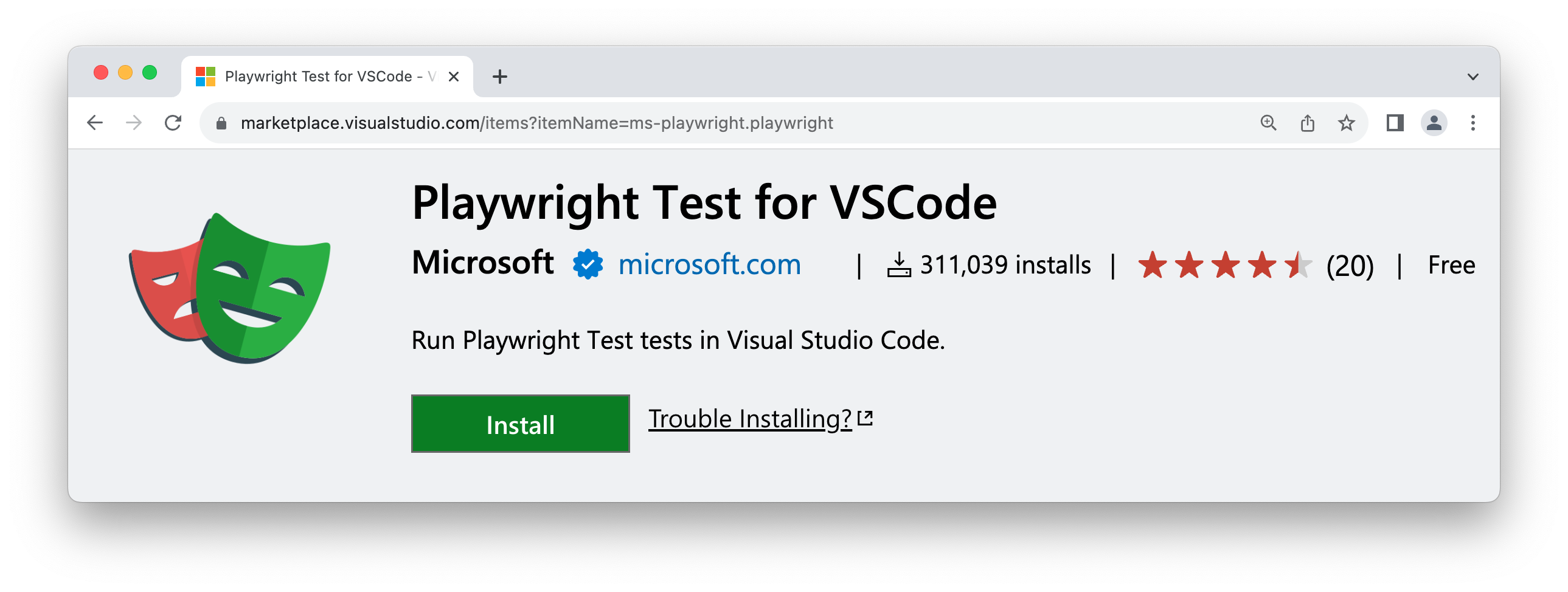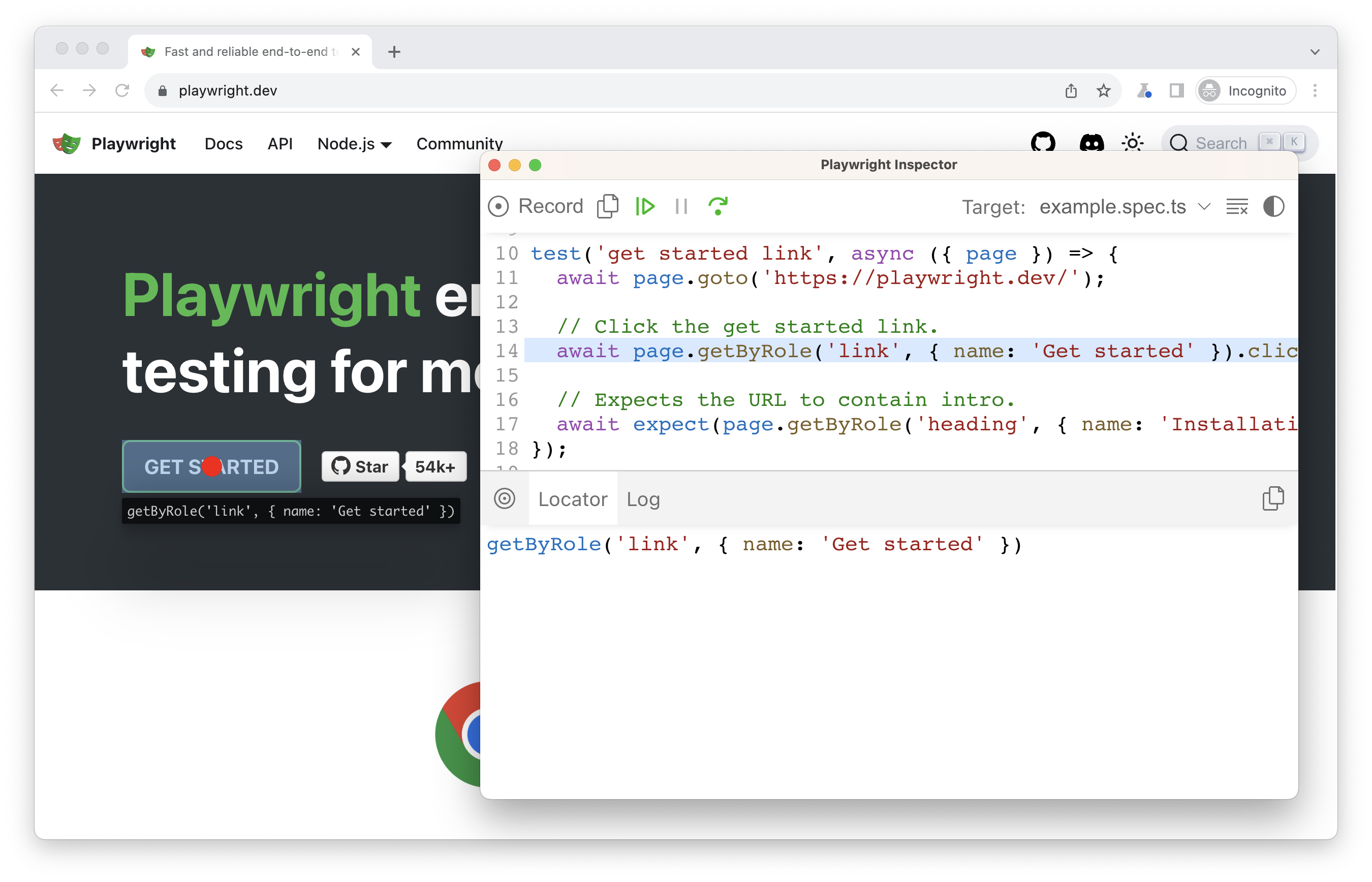With Playwright you can run a single test, a set of tests or all tests. Tests can be run on one browser or multiple browsers by using the `--project` flag. Tests are run in parallel by default and are run in a headless manner, meaning no browser window will be opened while running the tests and results will be seen in the terminal. However, you can run tests in headed mode by using the `--headed` CLI argument, or you can run your tests in [UI mode](./test-ui-mode.md) by using the `--ui` flag. See a full trace of your tests complete with watch mode, time travel debugging and more.
You can run your tests with the `playwright test` command. This will run your tests on all browsers as configured in the `playwright.config` file. Tests run in headless mode by default meaning no browser window will be opened while running the tests and results will be seen in the terminal.
We highly recommend running your tests with [UI Mode](./test-ui-mode.md) for a better developer experience where you can easily walk through each step of the test and visually see what was happening before, during and after each step. UI mode also comes with many other features such as the locator picker, watch mode and more.
Tests can be run right from VS Code using the [VS Code extension](https://marketplace.visualstudio.com/items?itemName=ms-playwright.playwright). Once installed you can simply click the green triangle next to the test you want to run or run all tests from the testing sidebar. Check out our [Getting Started with VS Code](./getting-started-vscode.md#running-tests) guide for more details.

Since Playwright runs in Node.js, you can debug it with your debugger of choice e.g. using `console.log` or inside your IDE or directly in VS Code with the [VS Code Extension](./getting-started-vscode.md). Playwright comes with [UI Mode](./test-ui-mode.md), where you can easily walk through each step of the test, see logs, errors, network requests, inspect the DOM snapshot and more. You can also use the [Playwright Inspector](./debug.md#playwright-inspector), which allows you to step through Playwright API calls, see their debug logs and explore [locators](./locators.md).
We highly recommend debugging your tests with [UI Mode](./test-ui-mode.md) for a better developer experience where you can easily walk through each step of the test and visually see what was happening before, during and after each step. UI mode also comes with many other features such as the locator picker, watch mode and more.
While debugging you can use the Pick Locator button to select an element on the page and see the locator that Playwright would use to find that element. You can also edit the locator in the locator playground and see it highlighting live on the Browser window. Use the Copy Locator button to copy the locator to your clipboard and then paste it into you test.
This command will open up a Browser window as well as the Playwright Inspector. You can use the step over button at the top of the inspector to step through your test. Or, press the play button to run your test from start to finish. Once the test has finished, the browser window will close.
To debug a specific test from the line number where the `test(..` is defined, add a colon followed by the line number at the end of the test file name, followed by the `--debug` flag.
While debugging you can use the Pick Locator button to select an element on the page and see the locator that Playwright would use to find that element. You can also edit the locator and see it highlighting live on the Browser window. Use the Copy Locator button to copy the locator to your clipboard and then paste it into your test.

Check out our [debugging guide](./debug.md) to learn more about debugging with the [VS Code debugger](./debug.md#vs-code-debugger), UI Mode and the [Playwright Inspector](./debug.md#playwright-inspector) as well as debugging with [Browser Developer tools](./debug.md#browser-developer-tools).
## Test reports
The [HTML Reporter](./test-reporters.md#html-reporter) shows you a full report of your tests allowing you to filter the report by browsers, passed tests, failed tests, skipped tests and flaky tests. By default, the HTML report is opened automatically if some of the tests failed, otherwise you can open it with the following command.